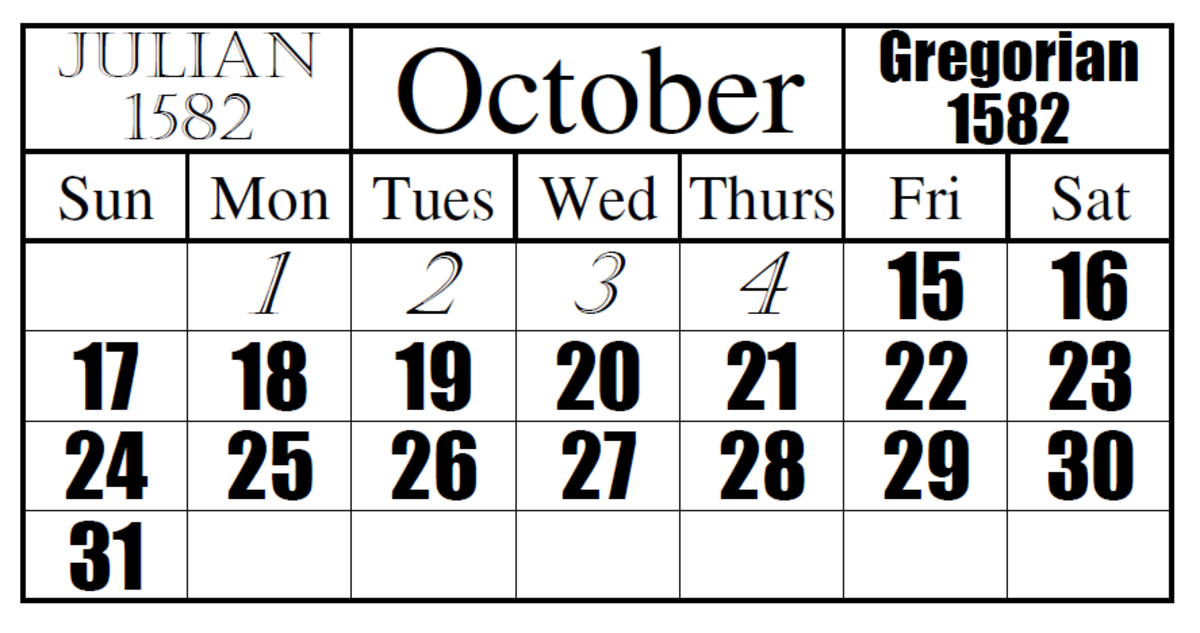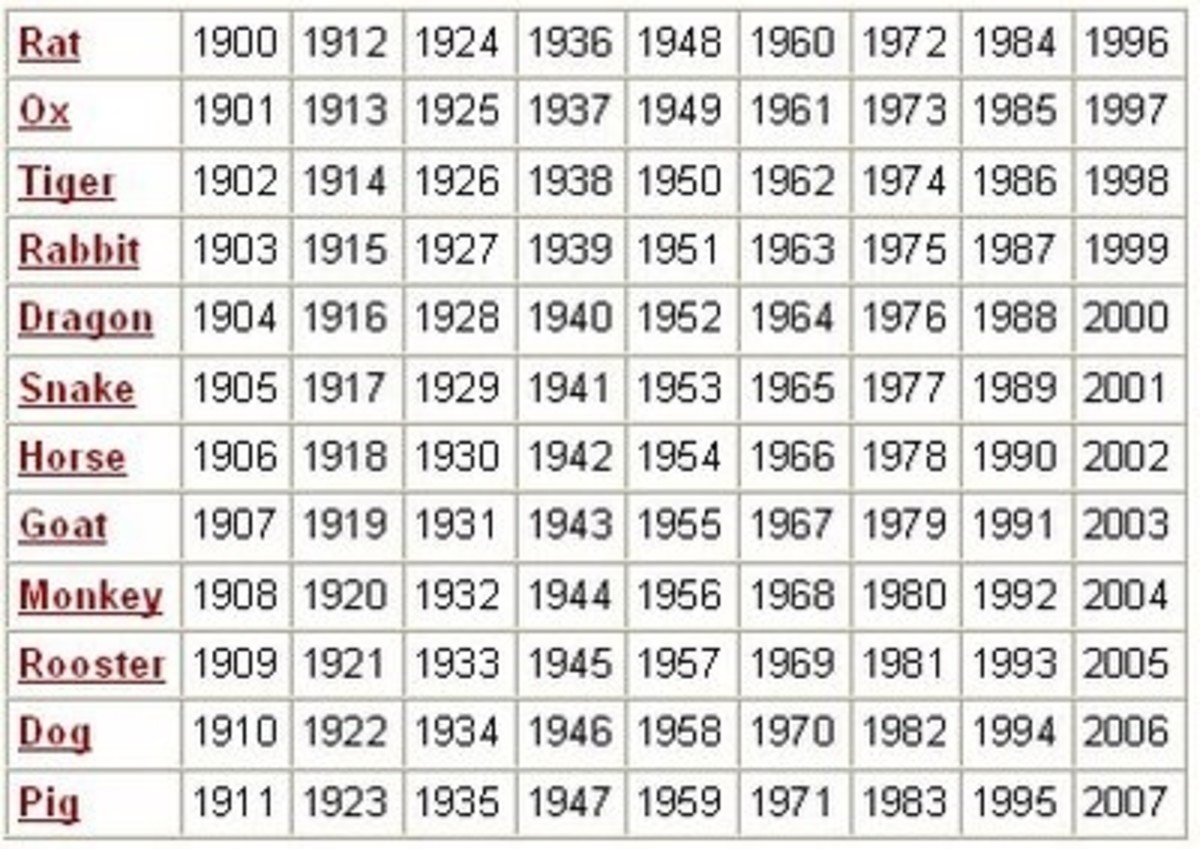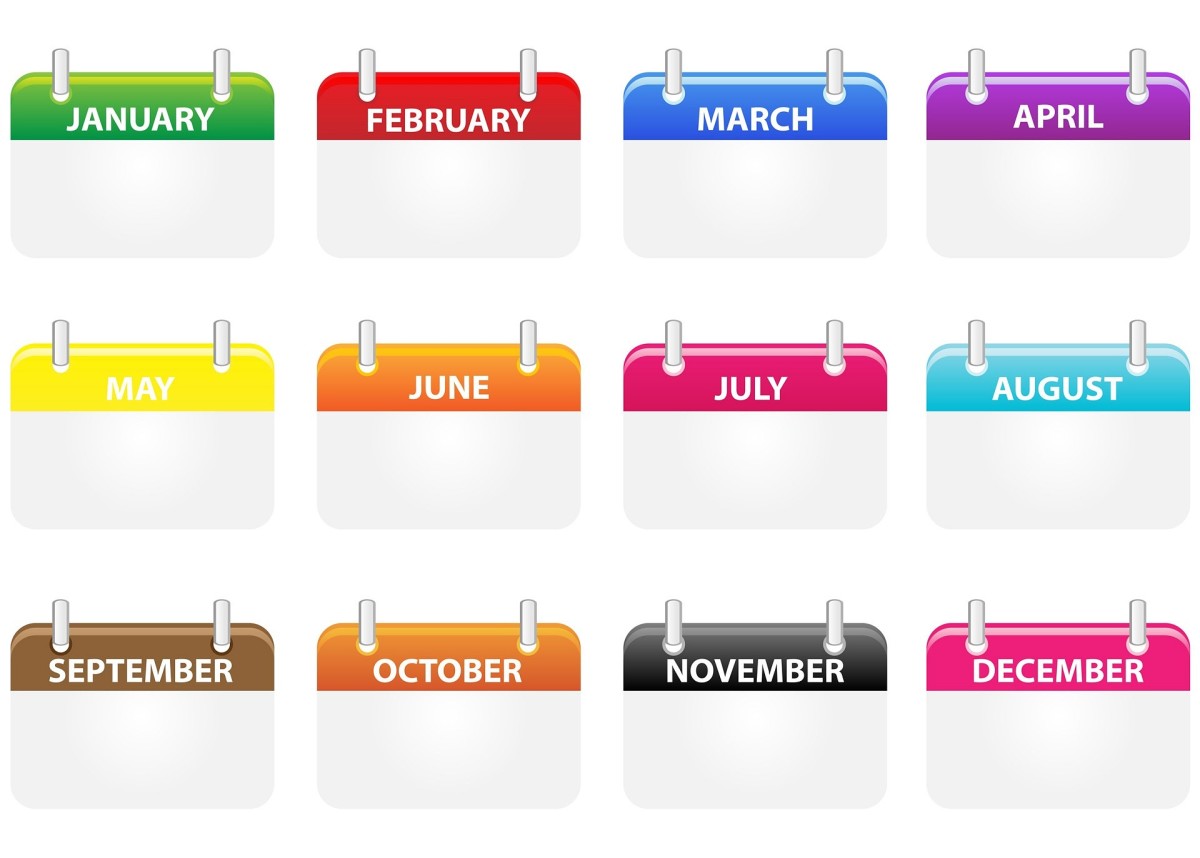Why does January 1st start the year? The New Calendar
Introduction
The standard western calendar, the Gregorian calendar, started counting years with the presumed birth of Christ, and separates years into BC (Before Christ) and AD (Anno Domini, which is Latin for "the year of the Lord"). So this year is 2009 AD, meaning the year of the Lord 2009.
The Gregorian calendar has not been in use for 2,000 odd years, however. It replaced, over several hundred years in different places, the Julian Calendar.
Julian Calendar
This was introduced by Julius Caesar in 46 BC, because the system used previously had allowed "drift" in that the calculations were not exact and therefore the months of the year had moved according to the weather and the time the earth took to rotate once. The length of the individual months (such as 30 days for September, June and April, and 30 for March, December and August) was fixed at this time. The idea of a leap year every 4 years, where an extra day is added to one month, was also introduced at this time. The names of months were not all changed, however, which is why some months have names which derive from the old (pre-46BC) numbers. September, October, November and December come from the Latin numbers for 7, 8, 9, and 10, although the months are now the 9th, 10th, 11th and 12th in the year.
The year started, in some respects, on 1st January because it was on that day that the two consels, who ruled in Rome, took office. Years were numbered after the consels in charge. However, other Roman writers used 21st April as New Year's Day instead, taking that as the date of the founding of Rome.
Local use of the Julian calendar
Although many places and rulers other than Rome used the Julian calendar, they didn't all start a New Year on 1st January. A variety of other dates were used, including several in March and September.
New Year's Day in England
The 1st January was adopted as the first day of the year in England in 1752. Before that, the new year started on Lady Day, the 25th March. This is the date on which the Virgin Mary was told that she was to give birth to Christ. In the same year, England became one of the last countries in Europe to ditch the Julian Calendar in favour of the Gregorian calendar.
Gregorian Reform
By the 16th century, the Julian calendar had also slipped a bit out of true. The Pope at the time, Gregory, promulgated the new Gregorian Calendar in the 1570s. It was quickly adopted by Catholic countries, and more slowly by protestant countries, such as England. This meant that for a couple of hundred years, the dates were different in different European countries.
In order to change from Julian to Gregorian, 10 extra days which had crept in through the addition, over centuries, of too many leap years, had to be missed out.
Russia did not change over until after the October Revolution in 1917, when the Tzar was overthrown. The actual date of the revolution in the Gregorian calendar was November, but it was October in the Julian calendar.
The change-over in England
By the time England changed from Julian to Gregorian in 1752, 11 days had to be missed out. Wednesday 2nd September 1752 was, therefore, followed by Thursday, 14th September 1752, when the change was made.
The tax and banking year had been from 25th March on each year. This was not changed to 1st January, but the extra days were added. So from 1753, and to this day in England and Wales, the tax year starts on 5th April each year.
Orthodox Christian Religions
Although countries such as Russia have changed for civil purposes, many Christian Orthodox Churches still use the Julian Calendar. Thus, Christmas in Russia (and other countries, such as Greece, Serbia, and Georgia) is celebrated on 25th December in Julian terms, which is, at present, 7th January in the Gregorian Calendar.
- The Christian Calendar explained in detail
- Calendar Converter
- Julian Calendar Reform - Who is the Julian of the Julian Calendar and what is the Julian Calendar?
Julius Caesar reformed the calendar of the Romans, creating what is known as the Julian Calendar.







